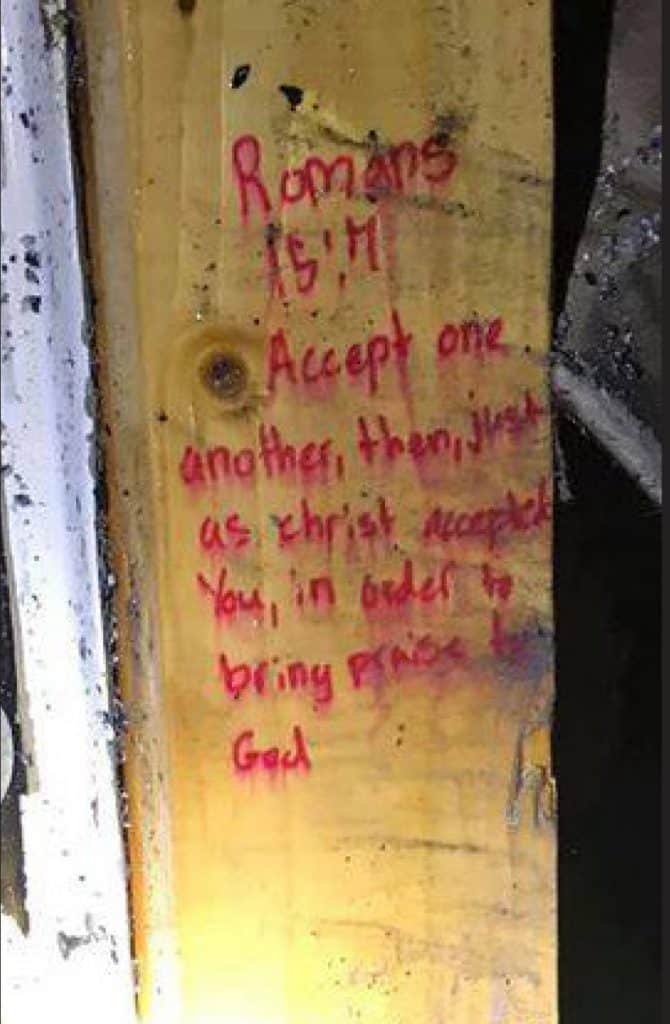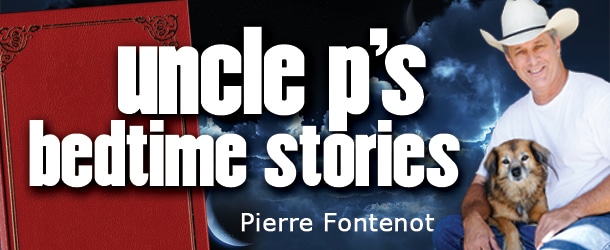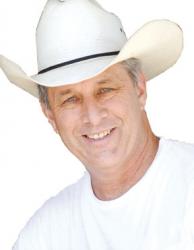Two years ago they built their dream home, in the middle of a ten-acre ark, complete with a few cows, some goats, chickens, dogs, a cat, and a pet bird.
They have five children, four under roof.
The parents were on the back patio, enjoying the cool of the evening, when they heard a loud popping sound. They turned and saw smoke billowing out of the house –
– you and I, all we can do now is imagine what came next, the detonation of adrenalin, the instant truth, of what really matters…
They got the kids out, and the clothes on their back.
The Author Transitions, But Will Return
By coincidence, I’ve been reading Walden, by Henry David Thoreau. He and I are kindred spirits, for measuring what matters, and living simply.
Thoreau sets the line. He fells the trees, and with his own hands builds a little cabin, 150sqft of all-he-needs. He spends $3.90 on nails, 14 cents on hinges for his one door. The total cost of his cabin, is $28, plus sweat of brow, ache of muscle, and time.
His material possessions are so few that he can name them: a bed, table, a tiny mirror, pair of tongs, one kettle, a skillet, one frying pan, a dipper, a wash bowl, two knives, two forks, one spoon, a cup, two jugs, one for oil, the other for molasses, and a lamp. He possesses three chairs, “One for solitude, two for friendship, three for society.” Four or more, everybody stands.
Thoreau writes from the 1840’s. Even then, he’s skeptical of the materialism he sees among his New England neighbors. The farmer thinks his ox and mule work for him – they do – a few months a year, but fences, food and worry, over the course of a year, Thoreau wonders who works for whom? He sees neighbors “toiling 20, 30, 40 years (to own their own land) but the tax assessor cannot name a dozen who own their farms free and clear. When the farmer has got his house, he may not be the richer but the poorer for it and it be the house that has got him.” Thoreau is measuring time and energy and the what-else-you-could’ve-been-doing.

The house of the 1840’s is now the McMansion, granite countertops, appliances worthy of a restaurant, in a kitchen less used than when Thoreau cooked over a bed of coals. Man pays for square footage he rarely steps upon, pays for furniture he never sits on, his cupboard is filled with cups and glasses, yet morning after morning, he drinks his coffee from his one favorite…
Loss Is Life’s Classroom
Thoreau resonates with me because I too have been reduced. Lessons took two forms; one, buying for pleasure, the joy lasting a day (if that), the debt lasting for years. The other lesson was in loss. I have lost, ruined, misplaced, broken… objects, relationships, respect, and time. That it took so many losses, and some so great: either I was hard headed, or God thought it essential for me to get clear, about what matters, and what doesn’t.
Instead of hardening me, loss wizened me. Loss taught me the power of pause ‘n patience. Loss is a mirror. Sometimes loss is the natural ending of what should never have begun.
But mostly, what losses have taught me, is healing.
Fruit Of My Own House Fire
I was informed of this fire by the mother and grandmother. Her reaction: “OMG! Are they all okay? Thank God they are all okay! God give them strength and peace! (All the while crying…)”
My immediate reaction was to jump to years from now, a not-in-the-moment social blunder. “I know my reaction was a little detached. It’s part of my quirky wiring. I tend to speed past the painful NOW, because I have so much faith in our ability to heal and handle. I’m thinking years from now, how the good fruit will reveal itself.”
She replied, “That is awesome wiring.”
Truth is, the wiring isn’t natural to me. It’s the fruit of my own version of a house fire.
The Writing On The Wall
An early American came across the Mucclasse Indians. Once a year the whole tribe went through all its possessions, each family piled its worn, broken and never used into one common tribal heap. Grudges and resentments were symbolically tossed onto the pile, and the misbehaved could return to the village, to see the entire pile set to fire.
The entire village would do a fast for three days, and all the campfires would be put out. On the fourth day the high priest would rub dry wood together, and begin a new, fresh fire, from which every family drew its start, for the new year.
This family lost wedding pictures, but they still have the marriage. They lost baby pictures, but still have the kids. They’ve lost mementos, but still have the memories.
In a nation sick with more-more, this family gets the medicine of less-less. Like Solomon’s words, for everything a season: today, tomorrow, mourn. Another season follows. In the replacing season, their choices will be by who they are now, not by who they used to be.
Before the walls were up, the wife asked friends and family for their favorite Bible verses, to be written on the studs, hidden in the walls. The local TV station began its report, “Bible verses were all that was left on the walls…”
Yes. The stink of burn, the black of destruction, and then there it was, Romans 15:7. “Accept one another, as Christ accepted you.” The wife’s mother’s verse, Psalms 51:10 “Create in me a clean heart…” Her grandmother’s verse outlived the grandmother. Deuteronomy 6:9, “…thou shalt write them upon the posts of thy house…”
Read up on trees, some seeds only open after a forest fire. This collection of individuals, from the youngest to the oldest, they are now about to seed their own future. The fire revealed a truth and they are now altered. It is up to them to be improved.
_ _ _ _ _ _ _ _ _ _ _ _ _ _ _ _ _ _ _ _ _ _ _ _ _ _ _ _ _ _ _ _ _ _ _ _ _ _ _
This edition of Uncle P’s Bedtime Stories is dedicated to the proposition that loss and gain are both rubber on the same wheel. Uncle P can be reached for comments, or to order a copy of his book, at eightyoneantiques@gmail.com.

















Comments are closed.